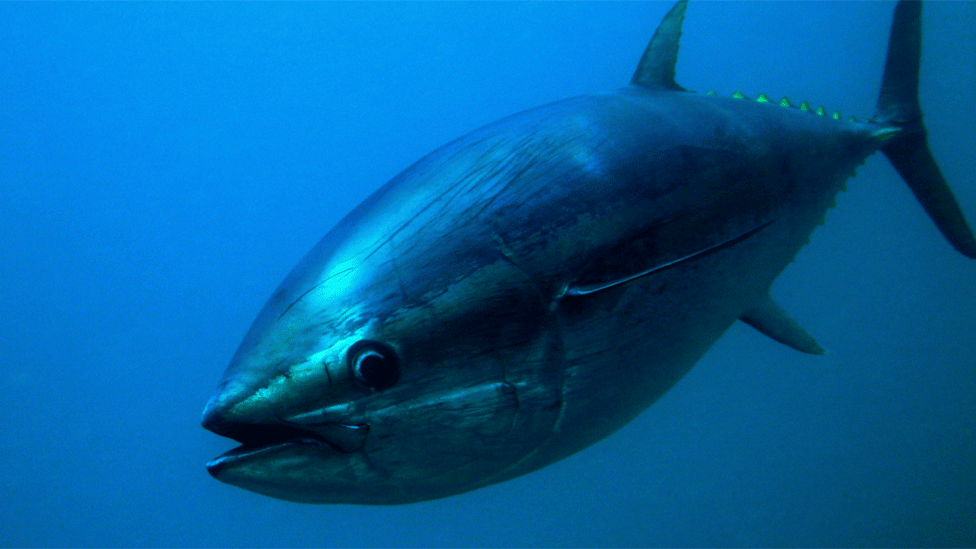Scientists delve into mystery of returning bluefin tuna
- Published
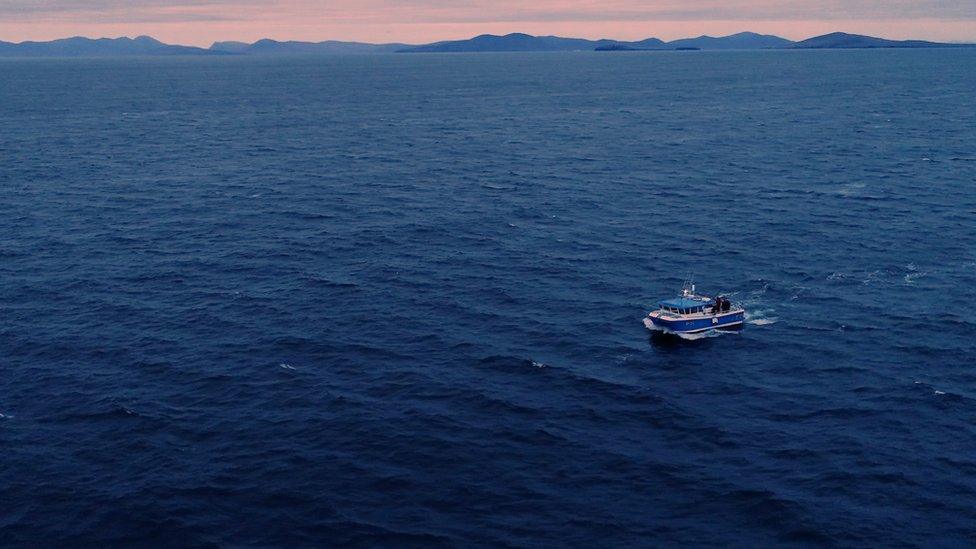
Scientists have been tagging bluefin tuna caught in the sea off the Western Isles
Researchers are investigating the reappearance of Atlantic bluefin tuna off Scotland.
The fish were once a common sight around the British Isles, before disappearing in the 1990s.
In the last five years, tuna have frequently been seen from late summer to winter.
The Western Isles, where the first recorded rod-line catch of an Atlantic bluefin tuna was made in 2013, is a focus of the research.
The fish caught six years ago by Angus Campbell, an Isle of Harris-based boat operator, weighed 515lb (233kg).
Bluefin tuna are one of the largest and fastest fish on the planet. They started declining in numbers off the British Isles from the 1940s.
Scientists are working with Mr Campbell and experienced anglers to catch, tag and release bluefin tuna back into the sea.
The tags mean the movement of the fish can be tracked.
Previously, bluefin tuna tagged off the remote Scottish archipelago of St Kilda were tracked to the Azores and the Bay of Biscay.
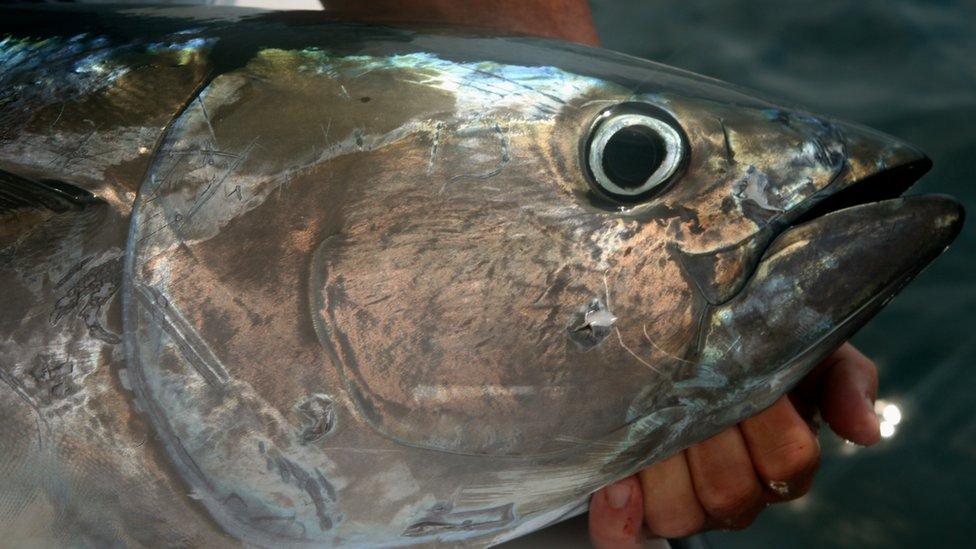
Bluefin tuna were once a common sight in British waters
The latest research is being carried out by the Thunnus UK, a collaborative research project that includes the University of Exeter, The Centre for Environment, Fisheries and Aquaculture Science (Cefas) and the Tuna Research and Conservation Centre of Stanford University.
Scientist Tom Horton said little was known about why bluefin tuna had returned to British waters.
He told BBC Scotland: "We are seeing Atlantic bluefin tuna coming back to the British Isles after a period of quite a long absence.
"The bottom line is we really know very little about this animal so we are here to try and figure out a little bit more."
He added: "Our long-term aim is to provide a baseline understanding of these in animals in the waters of the British Isles."
Mr Campbell said he hoped that eventually enough bluefin tuna would return to Scottish waters for anglers to take trips to catch-and-release the fish.
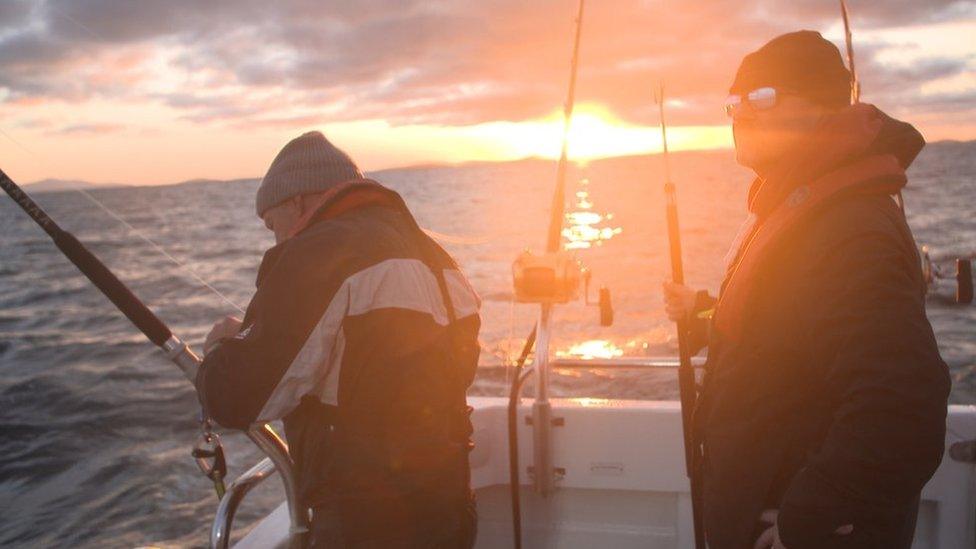
Scientists have been working with experienced anglers on the research project
- Published2 January 2019
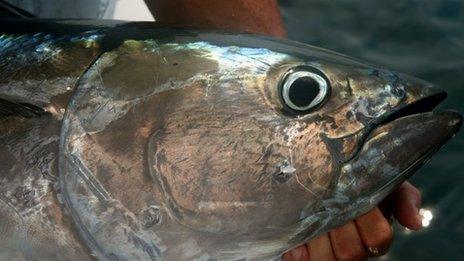
- Published22 October 2018

- Published17 March 2015
